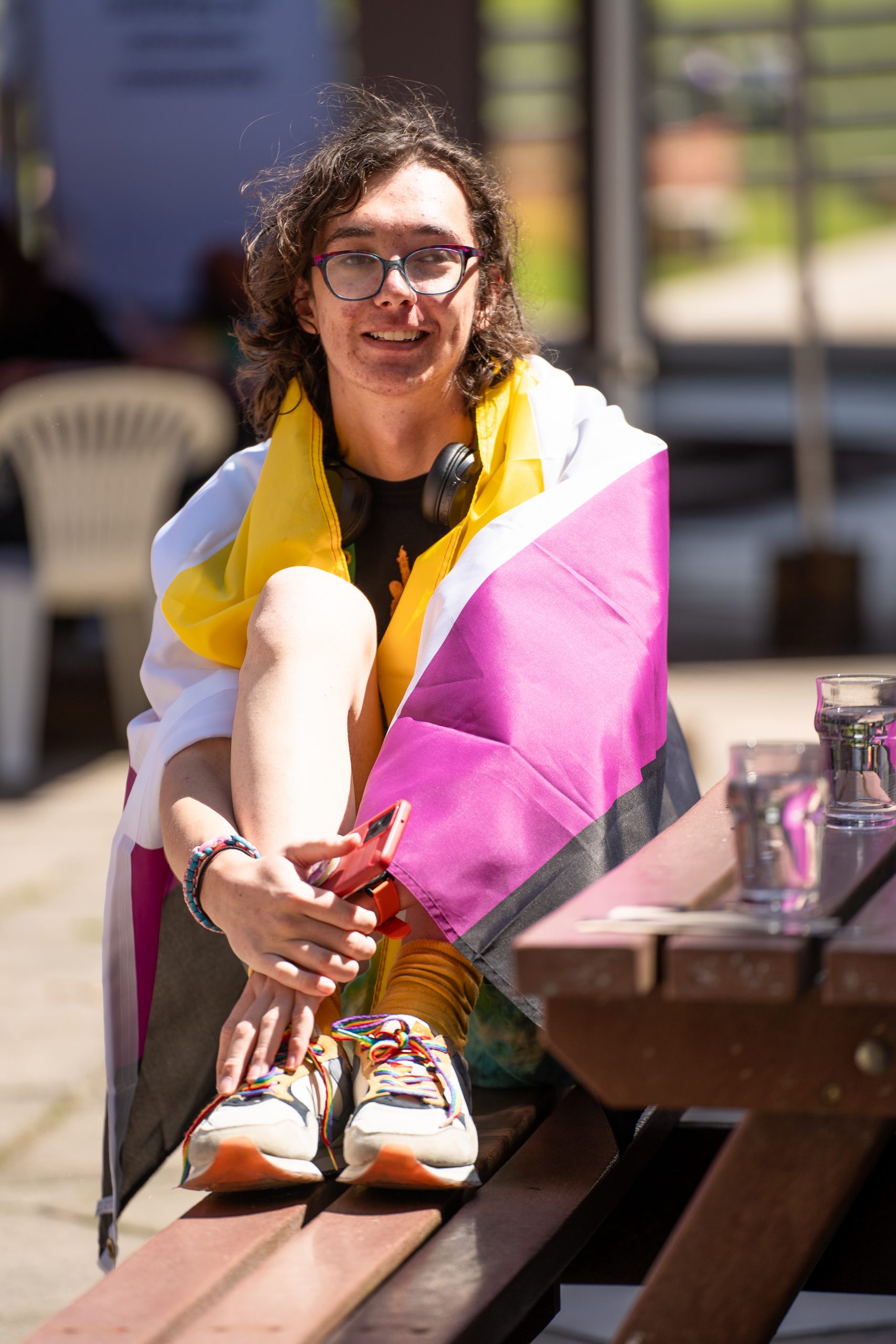Being in a minority group, as is the way with conditions such as Autism and ADHD, can often be a lonely experience. While you often find your own people who will stick with you and support you through the highs and lows, involving yourself in activities such as competitive sport can be isolating. Sure, there are other neurodivergent sailors, and I’m privileged to be within multiple communities including people of a wide range of disabilities and conditions, yet often you feel that you are largely surrounded by people who aren’t like you. To make matters worse, it becomes difficult to find role models to look up to – with relatively few prominent neurodivergent people, and even fewer in competitive sailing.
Over time, I’ve tried to find people to look up to in different environments. Friends who have sailed for longer than I have, leadership figures with similar traits to me, or sometimes even just people I felt who understood me. Outside of sailing, I’d look to those who demonstrated attributes I wanted to develop – independence, confidence, understanding of others. Sometimes I’d look towards prominent figures with other disabilities than mine – such as Alex Brooker and Rosie Jones, both brilliant comedians with a phenomenal ability to speak on matters relating to disability and inclusion.
When I started university, however, things changed, in an unexpected way. At my university, there is a walkway that spans the entire length of campus – called ‘the spine’. During term time, this route is often busy, with people moving between lectures, and I started feeling a sense of loneliness I had never felt before – seeing people that I sensed were not like me. I cannot describe how this works, it is an inner sense complex by nature. I felt I had no one to look up to – and that everyone around me was as different from me as they could be.
Part of this led to me realising that I am transgender, as well as finding that I am not attracted to others as convention would expect me to. Realising what made me feel distant from others was a huge step to feeling better about being myself. However, this also presented a challenge of how I would feel represented. In our sport, we have virtually no prominent trans sailors and even outside of the sport I still find I don’t have many people like me to look up to.
As someone striving to take part in high-level competition, and be the best sailor and sportsperson I can be, having so few people to serve as an inspiration is a huge issue. While others around me look up to sailors such as Ben Ainslie or Paul Goodison, I’m finding that everyone is slightly different to me. There’s no-one to give me confidence and inspiration – no one to look at as someone to aim for. At a lower level, I feel like the ugly duckling – different in so many ways to everyone around me.
Earlier this year, I felt at a real low, as lonely as ever, struggling with the emotions of being different to anyone I came across. A wise friend then suggested that ‘sometimes you have to be your own representation’, words that I took onboard and haven’t dropped since. While I often still feel lonely, I have more confidence knowing that by being visible, as an autistic person and as a trans/non-binary woman, that others can look up to me and feel that they are a little less alone. Being open about my identity might be challenging, yet even if it gives a small bit of inspiration to someone else, I feel that is worth the hard moments.
Whether it is within sailing, wider sport, education, broadcast media or society in general, there are always groups that are poorly represented or understood. Being in one of those groups can be challenging in ways others often cannot fully understand. I’m not saying people should force themselves to be open when they aren’t comfortable doing so, yet I feel that sometimes sharing stories such as these can make everyone – including the one sharing it – feel a little less alone.


Leave a Reply